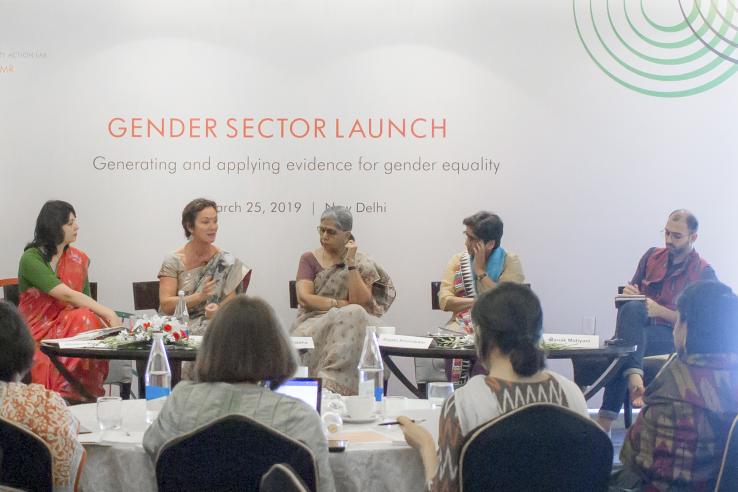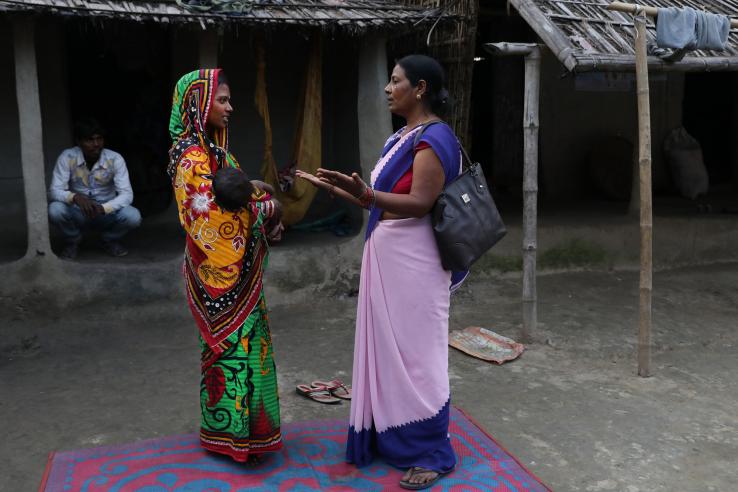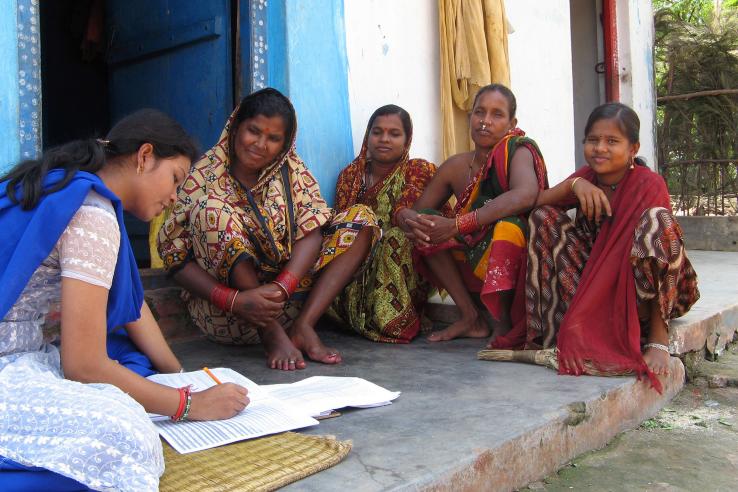Displaying 1456 - 1470 of 8491
Person
Blog
Program implementers, evaluators, and donors convened in New Delhi to formally launch J-PAL’s gender sector in South Asia and discuss the current context and future priorities for the sector.
Blog
We’re looking for passionate program and policy experts to join our team and help lead efforts to expand TaRL to reach up to three million primary school students in Africa over the next five years.
Blog
At the United Nations Climate Change Conference in December 2018 (COP24), parties agreed to a rulebook that lays out how governments will measure, report and verify emissions under the Paris Agreement. Now countries need to act—and know whether policies and programmes are meeting their climate goals...
Blog
Around the world, vast amounts of data are now being digitally collected or stored, which creates tremendous opportunities to transform lives through better social policies. Using these data sets in creative and innovative ways to evaluate programs and therefore improve outcomes is a vital step...
Blog
Will Dobbie is a J-PAL affiliate and an assistant professor of economics and public affairs at Princeton University. He is a recipient of a 2019 Sloan Research Fellowship, awarded to “early-career scientists of outstanding promise” in recognition of “distinguished performance and a unique potential...
Blog
Paul Niehaus is a co-founder and president of GiveDirectly, co-founder of fintech start-up Segovia, and professor of economics at the University of California, San Diego. Named one of 100 leading global thinkers by Foreign Policy magazine in 2013, Paul represents a new generation of development...
Event
What does it mean for women to have agency? Can women’s empowerment be measured? How can we know if social norms have changed? Join us for a webinar with Shagun Sabarwal, Director of Policy, Training, and Communications at J-PAL South Asia, on strategies to measure gender outcomes—agency...
Blog
In November, J-PAL Director Abhijit Banerjee delivered a public lecture at the American University in Cairo as part of J-PAL’s broader efforts to engage policymakers in the Middle East and North Africa (MENA). Watch the full video and learn more about J-PAL's work in the region.
Blog
Philanthropy in Chile is at a pivotal moment. A recent study by the Philanthropy and Social Investments Center at the Adolfo Ibáñez University suggests that philanthropists are transitioning away from actions that are purely charitable to actions that are more strategic.
Blog
Growing from just a few research assistants in Delhi and a lean support team in Chennai in 2007 to more than 175 staff across nine field offices today, the J-PAL South Asia team is filling critical evidence gaps and building the capacity of governments and civil society organizations to create...













